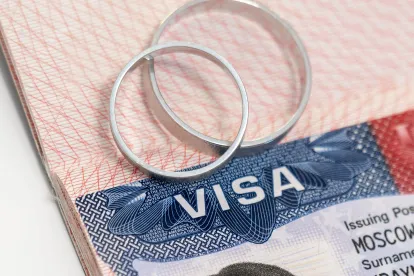A recent ruling in the U.S. District Court for the District of Columbia provides added protection and work authorization safeguards for H-4 spouses of H-1B visa holders facing potential lawsuits and administrative challenges.
In Save Jobs USA v. U.S. Department of Homeland Security, the plaintiff argued that the 2015 rule allowing H-4 visa holders to apply for employment authorization lacked statutory authority, violated the nondelegation doctrine, and was arbitrary and capricious.
The rule in question, implemented by the U.S. Department of Homeland Security (DHS), provides employment authorization to certain H-4 dependent spouses of H-1B nonimmigrants who are seeking employment-based lawful permanent resident (LPR) status. These H-1B nonimmigrants must be the principal beneficiary of an approved Immigrant Petition for Alien Worker (Form I-140) or have been granted H-1B status in the United States under the American Competitiveness in the Twenty-First Century Act of 2000 (AC-21). DHS adopted this rule with the anticipation that its “regulatory change [would] reduce personal and economic burdens faced by H-1B nonimmigrants and eligible H-4 dependent spouses during the transition from nonimmigrant to LPR.” The rule supported the ultimate goal of attracting and retaining highly skilled foreign workers and minimizing disruptions to U.S. businesses. These goals aligned with the U.S. Congress’s intent in passing AC-21.
The primary, and perhaps strongest, of the plaintiff’s contentions was that DHS had never been granted authority from Congress to allow H-4 visa holders to work during their stays in the United States. Here, however, the Immigration and Nationality Act (INA) provided an explicit grant of authority to DHS, allowing the department to “‘establish such regulations’ as its Secretary ‘deem[ed] necessary for carrying out his authority.’” The text of the INA therefore “expressly contemplate[d] DHS authorizing employment for foreign nationals.” Congress also kept silent by “‘refusing to overturn [an] administrative construction, but … [ratifying] it with positive legislation,’” cementing “that construction [as] virtually conclusive.” Lastly, Congress further “verified ‘that DHS may lawfully authorize employment for nonimmigrants,’” upon the passage of the (IRCA). This express authorization further “‘confirm[ed] that Congress ha[d] deliberately granted the Executive power to authorize employment.’”
The plaintiff also argued that DHS had “entirely failed to consider” the “negative effect” that the H-4 Rule could have on American workers. However, DHS had calculated that “even if every eligible H-4 spouse took advantage of the rule in the first year (the year with the most newly-eligible H-4 spouses) it would amount to less than 0.12% of the U.S. workforce.” The plaintiff was unable to provide empirical data to counter this assertion. Thus, the court accepted DHS’s conclusion that “the H-4 Rule’s benefits outweighed its ‘minimal’ economic costs.”
In sum, Save Jobs USA v. U.S. Department of Homeland Security provides a positive outlook on the future of H-4 work authorization. The ruling not only helps solidify Congress’s intent to allow DHS the ability to grant work authorization to H-4 visa holders, it also signals that any prospective argument that H-4 work authorization harms the U.S. workforce must be supported by hard data.
Ogletree Deakins’ Immigration Practice Group will continue to monitor developments with respect to these and other policy changes and will post updates on the Immigration blog as additional information becomes available.



 />i
/>i

